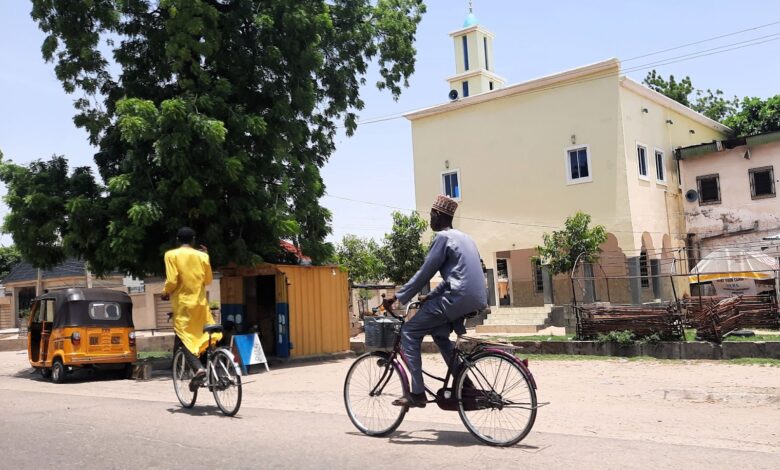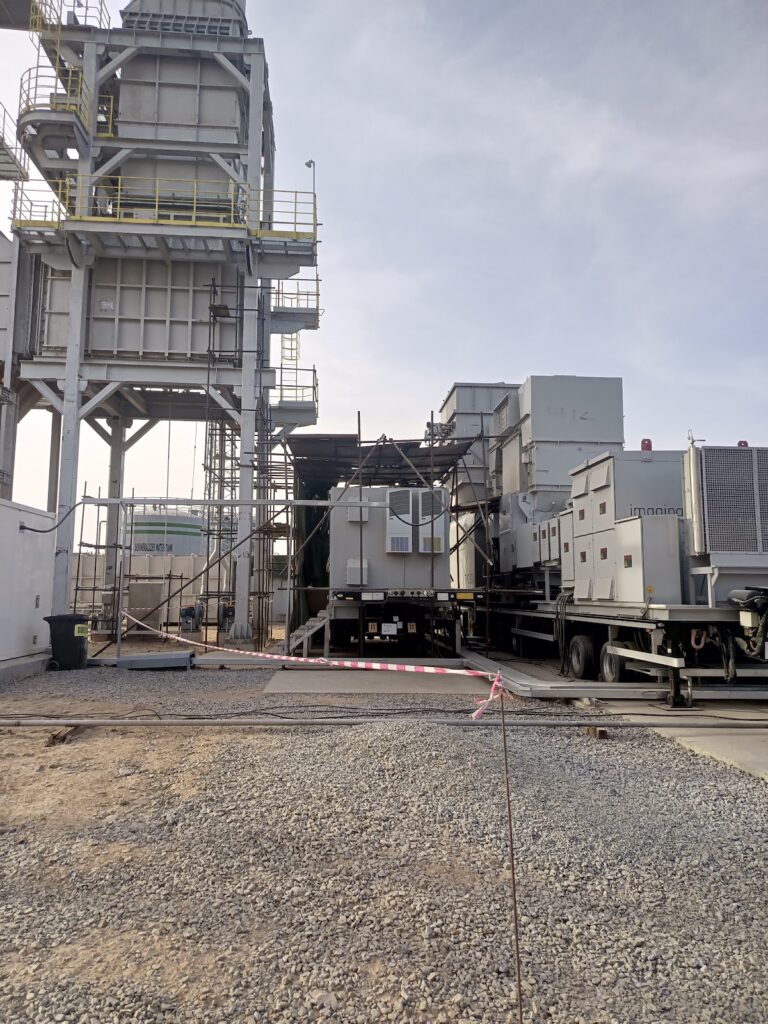Maiduguri Residents Suffer Through 43°C Heat Amid Unexplained Power Cuts
People in the city face power outages amid extreme heat, health risks, and economic challenges. Meanwhile, the plant manager of the facility supplying electricity gave assurances that the problem was minor.

The city of Maiduguri in Borno state, northeastern Nigeria, has been plunged into darkness for several weeks, leaving its residents in a dire situation. The prolonged power outage, caused by the breakdown of a backup gas turbine, has exacerbated economic woes as businesses are forced to rely on expensive diesel generators to keep running.
The absence of electricity has not only impacted daily life but has also posed serious health risks. With hospitals struggling without power, patients, especially those recovering from surgeries, face additional challenges in receiving proper care.
“I’ve been looking after my sick brother for more than a month. The past few weeks have been extremely hot and difficult for us because the University of Maiduguri Teaching Hospital (UMTH) is experiencing a lack of electricity,” said Abubakar, a resident who preferred to be identified only by his first name.
Kaltum Dawud, whose husband is hospitalised for a severe diabetic condition, explained that they were forced to leave the hospital wards due to the unbearable heat.
While extreme weather conditions have been a defining feature of Maiduguri, the concern about the heat situation becomes even more pronounced, especially when the Lent and Ramadan periods coincide with the blackout.
As Muslims in Maiduguri observe the holy month of Ramadan, the scorching heat, with temperatures soaring up to 44°C, has made the situation even more unbearable. Many residents, unable to afford to power their generators, are now forced to spend double the amount they used to pay for a sachet-water-size of iced water to cool down during the time of breaking their fast.
“This Ramadan has been particularly challenging for us as it coincides with the most difficult times. We are facing both the intense heat of the weather and economic hardships. The lack of electricity further exacerbates the situation,” said Modu Alkasim, a civil servant.
The power outage was triggered by a recent attack on a major high-tension tower by Boko Haram insurgents in January. While a similar attack in 2021 left the city in darkness for over a year, the impact of the latest attack in January this year was not felt because the installation of a new gas turbine in 2023 provided a more reliable source of electricity for the city.
The breakdown of the gas plant in late February has now left residents reeling from the consequences of the January assault on power towers.
HumAngle’s visit to the gas plant revealed insights from Plant Manager Jubril Adeyemo, who assured us that the current issue was a minor setback and could be quickly resolved.
He dismissed rumours of gas shortages by pointing out the substantial gas reserves that are ready to power the plant and bring electricity back to the city.
“It is a minor fault that can happen to an engine, just like your normal car, and all you need to do is to fix it. That doesn’t mean the car is out of function. We are committed to keeping this plant running,” Adeyemo stated.
Directing attention to six yellow tanks parked within the premises of the transmission station, he explained, “We have more than enough gas for this plant to run for months. As you can see, I have had to stop the arrival of more tankers because we lack space for parking them. Six are already here waiting to unload into our tanks. Moreover, we receive supplies daily in Maiduguri for the south. We will fix the issue, and the plant will continue to operate and supply electricity to Maiduguri and the surrounding areas. We are determined to ensure that residents have power during Ramadan.”

Though a bit frugal on the specific issue bedevilling with the gas turbine that was commissioned in the first quarter of 2023, Adeyemo repeatedly emphasised that the problem was minor.
“Look, this is not a significant issue. This plant is brand new, and everything you see here is what Nigerians call tear leather. A breakdown in such a new machine is unmanageable,” he stated.
Engineer Adeyemo’s reassurances provide a ray of hope, but residents are still experiencing the challenges of extended power outages, highlighting the essential need for reliable electricity.
In recent days, the power plant has shown signs of early recovery. Some areas reported brief periods of restored electricity, while others experienced less stable power compared to before the plant malfunctioned. The inconsistencies are clear signs of the plant’s ongoing struggle to resolve the glitch.
Support Our Journalism
There are millions of ordinary people affected by conflict in Africa whose stories are missing in the mainstream media. HumAngle is determined to tell those challenging and under-reported stories, hoping that the people impacted by these conflicts will find the safety and security they deserve.
To ensure that we continue to provide public service coverage, we have a small favour to ask you. We want you to be part of our journalistic endeavour by contributing a token to us.
Your donation will further promote a robust, free, and independent media.
Donate HereStay Closer To The Stories That Matter




